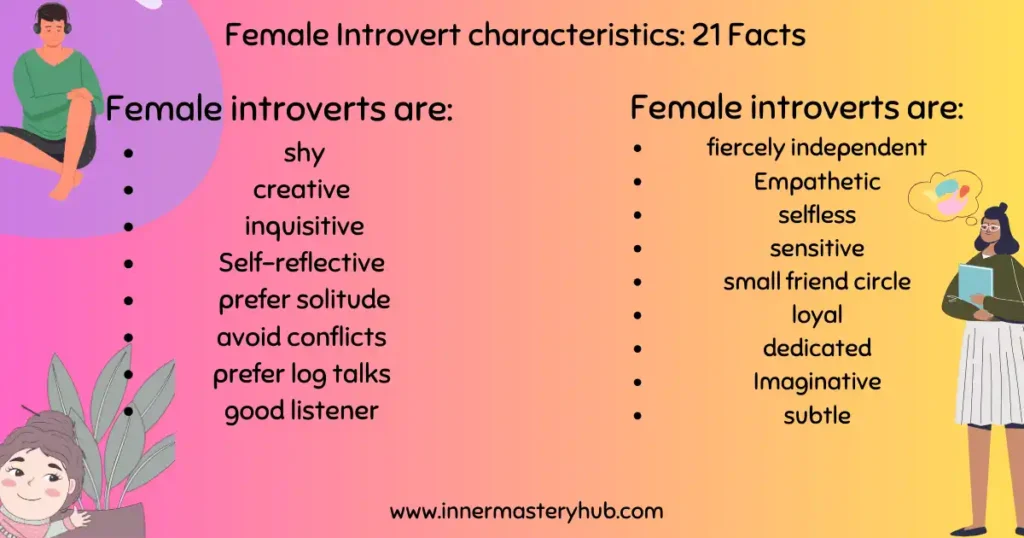Likeable Person Test: 7 Powerful Emotional Signals That Reveal If You’re Truly Likeable
The Likeable Person Test helps you understand how others see you and what makes you naturally appealing. Through simple questions, it measures traits such as empathy, confidence, and communication.

In a world where relationships and connections are necessary for Survival, being liked is really significant. A person’s capacity to connect, network, and have regular conversations is greatly affected by their likability. Take the Likeable Person Test to find out your charm level. This extensive work will examine the characteristics and behaviours that make people likeable.
What is the Likeable Person Test about?
The Likeable Person Test is a comprehensive assessment tool designed to evaluate and improve a person’s likeability and social skills. It is based on the Big Five Personality Test1. These include understanding, body language, communication style, and emotional intelligence. People can learn to become more approachable, friendly, and relatable to others by taking a short test with a few questions.
The Likeable Person Test provides you with constructive criticism and recommendations to develop your social skills and create positive relationships in both personal and professional lives by highlighting your strengths and areas for improvement.
What Actually Makes Someone Likeable?
When someone makes others feel safe, seen, and emotionally at ease, they are likeable. According to research, in first impressions, warmth and reliability are more important than skill. Instead of charm or charisma, likeability is developed via emotional stability and active listening.
Warmth is evaluated before ability and has a greater impact on trust according to studies by Harvard psychologist Amy Cuddy
You may think that you must be remarkable. However, the question that people are posing is actually different:
Do I feel emotionally safe around you?
Likability is not about dazzling people. It’s about lowering their internal defences.
How Does the Inner Psychological Process Affect Your Likability?
Likability is shaped by an internal chain reaction: a social trigger activates your interpretation, your interpretation generates emotion, and that emotion influences your behaviour. Others respond not only to your words but to the emotional tone created by this internal process.
Imagine someone doesn’t reply to your message quickly.
The trigger is silence.
If your interpretation is that they’re ignoring me, your body produces irritation.
That emotion changes your next interaction. Maybe your message becomes shorter. Maybe you withdraw slightly.
The other person senses distance and responds with equal distance.
Now your belief feels confirmed.
But the initial event was neutral.
Your interpretation shaped the emotional climate.
This is why the Likeable Person Test is less about personality traits and more about internal meaning-making.
Can You Be Too Nice and Still Not Likeable?
Yes. Being overly kind out of fear of being rejected can make someone seem less likeable because it isn’t genuine. Consistent emotional cues are more likely to be trusted than pleasing behaviour. Kindness that is calculated rather than sincere causes uncomfortable feelings.
You think being agreeable guarantees acceptance.
However, when you repress disagreement to avoid conflict, your energy shifts.
You learn to be cautious. a little wary. less emotive.
Others think you’re not being who you truly are, even when you think you’re being nice.
Since it conveys psychological stability, authenticity makes people more likeable.
Agreeableness alone does not.
Is Likability a Skill or a Personality Trait?
Likability is partly influenced by temperament but is largely shaped by emotional regulation and relational awareness, both of which are learnable. Studies on emotional intelligence show that individuals who manage their internal responses effectively are perceived as more trustworthy and socially attractive.
Emotional intelligence research by Daniel Goleman
If you can notice your internal reactions without being controlled by them, your presence becomes steadier.
And steadiness feels safe.
Safety feels likeable.
The Big Five personality traits
According to the theory of traits in psychology, people have different personalities because they have diverse characteristics. These characteristics are known to psychologists as “the Big Five.” They are neuroticism, conscientiousness, extroversion, agreeableness, and openness to new experiences. People’s personalities are based on these characteristics.
You may have a better or lower level of agreeableness, extroversion, and other characteristics. Most people are somewhere in the middle of these trait ranges. These traits give us helpful information about how people act and help us fully grasp how different people are.
Agreeableness
People who perform well on agreeableness tend to be helpful and compassionate. They are more inclined to lend a hand to others and are seen as reliable and kind. These people value harmony and cooperation, which is why their agreeable temperament creates positive interpersonal relationships.
Those with low agreeableness ratings, on the other hand, can be perceived as more aggressive and less emotionally sensitive. They interact with less regard for preserving a peaceful atmosphere and more attention to their own objectives.
Understanding where one falls on the agreeableness spectrum helps one better understand interpersonal preferences and social dynamics.
Extroversion
Extroversion is one characteristic that impacts how you interact with the outside world. You generally trend toward the more extroverted end of the scale if you normally feel comfortable in social situations, find that social interactions give you energy, and get your energy from outside sources. Conversely, introverts prefer working alone and detest social interaction.
Conscientiousness
Those who are conscientious are more methodical, meticulously planned, and inclined to be ready. People with higher levels of conscientiousness tend to be proactive, planning and considering others when acting. They thrive on tasks that call for close attention to detail, which offers a logical and organised approach to every aspect of life.
On the other hand, less conscientious people could be more impetuous, haphazard, and prone to snap decisions. Their behaviour can imply a less methodical, more impetuous approach to problems.
Neuroticism
Emotional instability, which is more prevalent in those with higher levels of neuroticism, is one personality trait that is generally seen as undesirable. A person with more neuroticism may be more vulnerable to stress, which could lead to increased anxiety or depression.
Conversely, those who are less neurotic are typically characterised by better emotional regulation and a serene manner. They can sustain more stable emotional states and handle difficulties with composure because of their emotional resilience.
Openness
Imagination, creativity, and intelligence are strongly associated with receptiveness to new experiences.
People who are more forthright and honest are more likely to be open to learning from others, willing to try new things, and inherently curious about novel concepts and experiences. Their tendency for creativity and innovation pushes them to consider a range of possibilities and pursue novel ideas.
On the other hand, those who are less receptive to new experiences could turn out more walled off and less receptive to novel concepts. People in this group may favour a more traditional, comfortable way of life over creative pursuits.
The Role of Personality Traits in Likeability
Most Likeable Person The likeable person tests are based on the Big Five model of personality traits: extraversion, neuroticism, openness, conscientiousness, and agreeableness. These traits define how you act in public and how other people see you. Let’s examine how the four traits of conscientiousness, openness, agreeableness, and neuroticism affect your likability using sample questions from these tests.

1. Staying Positive in Tough Situations
Likeable people appear optimistic even in trying circumstances. Low neuroticism (maintaining composure and emotional stability) and high conscientiousness (being organised and driven) are linked to this. When you remain positive, those around you feel happier.
People find you inspiring, for example, when you face a setback and instead of complaining, you choose to concentrate on finding solutions. Conscientiousness helps you stay focused, while low neuroticism keeps you from being too anxious or negative, making you a support system.
2. Making Others Feel Comfortable
Even in challenging circumstances, likeable people are typically optimistic. This is linked to low neuroticism (maintaining composure and emotional stability) and high conscientiousness (being organised and driven). When you stay optimistic, those around you feel more positive.
For example, when you experience a setback but choose to focus on finding solutions rather than whining, people find you inspiring. While conscientiousness helps maintain focus, low neuroticism shields you from being unduly anxious or pessimistic, providing a source of support.
Agreeableness is the essential component of likeability. It all boils down to being kind, helpful, and considerate. Highly nice people naturally regard other people, which makes interactions feel inclusive and amicable.
3. Listening Actively
Because they make others feel heard, good listeners are always liked. This has to do with agreeableness (considering other people’s sentiments) and openness (interest in other people’s opinions). When you listen to someone without interjecting and express genuine interest, they feel valued. Being open helps you understand others better, while being agreeable helps you respond with Empathy, thereby improving your connections.
4. Smiling and Making Eye Contact
You can instantly become more likeable with a pleasant smile and consistent eye contact. These actions are linked with agreeableness (friendliness) and openness (approachability and expressiveness). Making eye contact conveys confidence and attention, while smiling conveys friendliness. When combined, they increase your likability by fostering a sense of comfort and connection.
5. Showing Empathy
Likeable people are known for having Empathy because of high agreeableness. If you can empathise with someone else, you develop stronger bonds. For instance, calming a friend who is upset shows your concern, making you more trustworthy and likeable.
6. Keeping Promises
Keeping Promises and Integrity are big parts of likability, and they’re built on conscientiousness. When you follow through on your commitments, people see you as dependable, whether you’re on time or finish a task. This builds trust, a necessary component of being liked, and makes people feel comfortable relying on you, thereby increasing your appeal.
7. Using Humour
People can appreciate your humour and lighten the mood. Openness, which nurtures crHumourty and a willingness to share enjoyable ideas, is linked to this trait. A well-placed joke or lighthearted remark can put people at ease. Positive connections are maintained when likeable people utilise kindness and refrain from using sarcasm that could offend others.
8. Being Authentic
Being genuine to oneself, or authentic, increases one’s relatability and credibility. Since open people feel free to express who they really are, this is related to openness. People feel they can trust you when you are sincere. Being real attracts others and increases your likability, whereas pretending to be someone you’re not can make them suspicious.
9. Giving Sincere Compliments
Likeable people are aware of and grateful for others’ efforts, and they offer heartfelt praise. This is because of agreeableness since pleasant people take pleasure in encouraging others. Saying something like “You did a fantastic job on that project!” shows your regard for others. This cheerfulness makes people feel good around you, improving your likability.
10. Respecting Different Opinions
A major component of likability is having an open mind and respecting others’ opinions. This is related to agreeableness (valuing harmony) and openness (being interested in new ideas). People feel valued when you listen to their many points of view without passing judgment. This establishes a secure environment for conversation and increases your likability and approachability.
What If Likability Isn’t About Impressing Anyone?
At some point, you may realise that it is uncomfortable but freeing.
You were never trying to be likeable.
You were trying to avoid being rejected.
Those two motivations look similar on the outside, but inside, they feel completely different.
When your goal is avoidance, your nervous system stays alert.
When your goal is connection, your body relaxes.
And relaxed energy invites relaxed responses.
The Likeable Person Test, at its deepest level, is not asking whether you are charming. It is asking whether you feel internally safe enough to let yourself be seen.
Because when you stop editing yourself to prevent disapproval, your presence becomes clearer.
And clarity feels trustworthy.
Trustworthiness feels likeable.
What Does the Likeable Person Test Actually Measure?
A well-designed Likeable Person Test evaluates warmth, authenticity, emotional stability, listening ability, social responsiveness, and non-verbal congruence. It measures how consistently your inner emotional state aligns with your external behaviour, because alignment increases perceived trust and psychological safety.
Here’s a simplified framework to understand it:
- Emotional Baseline – Are you regulated or reactive?
- Attention Orientation – Are you focused on approval or connection?
- Authenticity Level – Do your words match your inner state?
- Relational Impact – Do people relax around you?
Likability increases when these four elements align naturally rather than being forced.
How to Use a Likeable Person Test
Taking a Likeable Person Test is simple. You can find free versions online on sites like ZandaX or ProProfs. These quizzes typically ask 10-20 questions, and you answer on a scale (e.g., 1 = Strongly Disagree, 5 = Strongly Agree). After completing the test, you receive a score and feedback on your strengths and areas for improvement.
For example, if your score shows you’re great at Empathy but could work on positivity, you might focus on staying optimistic during challenges. The likeable person test isn’t about labelling you as “unlikable” but about showing you where you shine and how to grow.
The Real Result of the Likeable Person Test
The Likeable Person Test is not a score.
It is a mirror.
It shows you how your inner interpretations shape your emotional tone, and how that tone shapes your relationships.
When you understand the trigger, the meaning you assign to it, the emotion that follows, and the subtle behaviours that emerge, you gain something more powerful than popularity.
You gain awareness.
And awareness changes presence naturally.
If you want to explore your relational patterns more deeply, reflect on your last three conversations and notice not what you said, but what you felt before you spoke. That is where likability begins.
FAQS About the Likeable Person Test
Are these online likeable person tests accurate?
Most are not scientifically validated and should be considered for entertainment or self-reflection rather than as a definitive assessment. They give you a starting point for thinking about your social skills, but they aren’t a true measure.
Can you boost your likability?
Yes, likeability is a skill set. You can improve by practising active listening, showing genuine interest in others, being more empathetic, and being dependable.
Is likability the same as being popular?
No. Popularity reflects visibility or status, while likability reflects emotional safety and trust. Someone may be widely known but not deeply trusted, while a likeable person creates comfort and ease in one-on-one interactions.
What traits make someone instantly likeable?
Warmth, genuine interest, steady eye contact, and emotional calmness contribute to instant likability. Studies show that people prioritise trustworthiness and warmth over competence during first impressions.
How does body language affect likability?
Open posture, relaxed facial expressions, and natural gestures increase perceived trustworthiness. Because people subconsciously read nonverbal cues, emotional alignment between words and body language significantly shapes likability.
What is a Likeable Person Test used for?
A Likeable Person Test helps you understand how your emotional patterns and communication style influence how others perceive you. It is commonly used for personal growth, leadership development, and improving social confidence by identifying areas such as warmth, authenticity, and emotional regulation.






